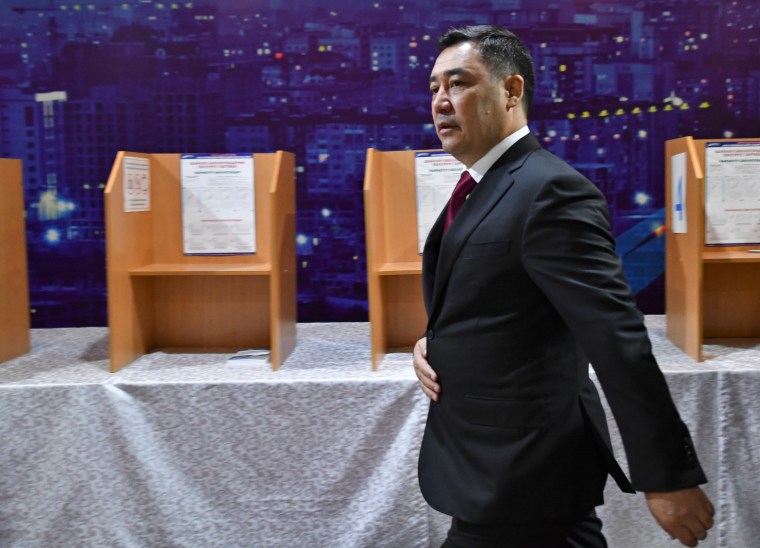Stockholm, August 8, 2022 – Kyrgyzstan authorities should immediately restore access to independent news website Res Publica and repeal a recently enacted false information law that severely threatens press freedom, the Committee to Protect Journalists said Monday.
On July 21, Res Publica editor-in-chief Zamira Sydykova announced on the outlet’s website and on her Facebook page that Kyrgyzstan’s Ministry of Culture, Information, Sport and Youth Policy ordered internet service providers to block access to its website after the outlet failed to comply with the ministry’s earlier demand to remove two investigative articles. The block is to last two months, but can be renewed if the outlet fails to remove the articles, according to Akmat Alagushev, media representative for local advocacy group Media Policy Institute, which is advising the owner of the domain name for Res Publica’s website, Yaroslav Tartykov, on the case and who spoke to CPJ by telephone.
This is the first useof the controversial law “On Protection from Inaccurate (False) Information” against a media outlet, according to Alagushev and news reports. The law was passed in July 2021 and the following month was signed by President Sadyr Japarov.
Res Publica intends to challenge the block in the courts, Sydykova told CPJ by phone.
“Kyrgyzstan’s false information law grants censorship powers to government agencies and effectively institutes a presumption of guilt against journalists. It should never have been signed into law in the first place,” said CPJ Program Director Carlos Martinez de la Serna, in Madrid. “Kyrgyz authorities should immediately lift the block on Res Publica and discard the false information law, which is all too susceptible to abuse by officeholders and influential businesspeople.”
Under the law, individuals and legal entities can demand that online publishers remove allegedly false information and publish a correction within 24 hours; if the content is not removed, the plaintiff can apply to the Ministry of Culture for the content to be removed within a set timeframe and, if the material is again not removed, order a block of the relevant website or webpage for up to two months without a court decision, according to an April 2022 Cabinet of Ministers’ decree establishing the procedure for the law.
The Ministry of Culture ordered access to Res Publica’s website to be blocked after Asan Toktosunov, former head of a state-owned airport services company, filed a content removal request under the false information law in connection with two investigations the outlet published in 2019 that accused him of corruption, according to Sydykova and copies of the ministry’s decision reviewed by CPJ.
Tartykov told CPJ by messaging app that on July 15 a Ministry of Culture representative sent him by messaging app a letter dated June 15 ordering Res Publica to delete the two articles within three days, but by July 17, the website had already become inaccessible in Kyrgyzstan. Tartykov said the ministry claimed it had previously sent the letter to an email address used by Res Publica, but Sydykova denied the outlet had received any letter at this address.
In March 2022, Kyrgyzstan’s Supreme Court upheld lower court decisions ordering Res Publica to publish corrections on passages referring to Toktosunov in the two articles in question, according to copies of the rulings reviewed by CPJ. Sydykova told CPJ that she considers the court decisions unfounded and that she stands by the outlet’s reporting.
In 2021, shareholders removed Toktosunov from his post and Kyrgyz authorities convicted him of corruption following Res Publica’s investigations, Sydykova said.
Toktosunov confirmed this conviction to CPJ but said that the allegations for which he was convicted were not those reported on by Res Publica in its investigations. He said that he had resorted to the law on false information after his previous efforts to obtain enforcement of court decisions to publish corrections had not been successful.
Sydykova added that the Ministry of Culture did not cite the court cases when issuing the block, and that the proceeding under the law on false information was entirely separate.
Alagushev told CPJ that the case shows the “absurdity and arbitrariness” of Kyrgyzstan’s false information law. While the law’s procedure requires plaintiffs to send the ministry “substantiated demands,” it does not specify any criteria for the ministry to use when ordering removals, nor require the ministry to justify its decisions.
A ministry representative told local outlet Aprel that it is “not the job” of the ministry to rule on the veracity of disputed content but merely to act on the plaintiff’s complaint if website owners refuse the plaintiff’s request for removal.
Authorities can continue to renew the block as long as Res Publica refuses to remove the disputed material, Alagushev told CPJ. Website owners can appeal the Ministry of Culture’s decisions in the courts, he said, but such a process will likely take several months to complete, during which time the website may remain blocked.
Analyses of the law by Media Policy Institute and local legal NGO Adilet have argued that it will be used to silence corruption reporting, while the lack of transparency over decision-making itself entails a high risk of corruption and abuse of power.
CPJ emailed the Ministry of Culture for comment but did not receive a reply.
Established in 1992, Res Publica is Kyrgyzstan’s oldest independent news outlet, Sydykova said. Sydykova, a former Kyrgyz ambassador to the U.S., previously served three months in prison and was twice banned from journalism for extended periods on criminal libel charges, according to reports and Sydykova.
